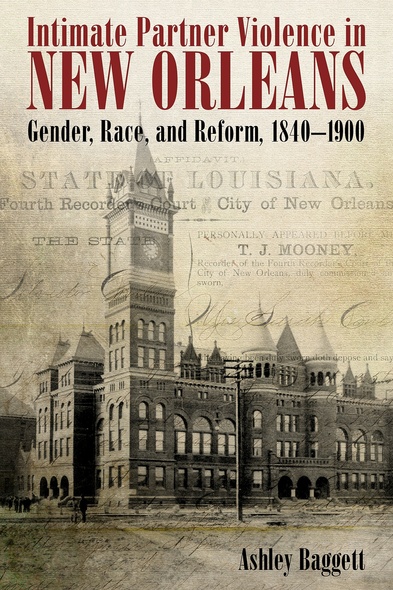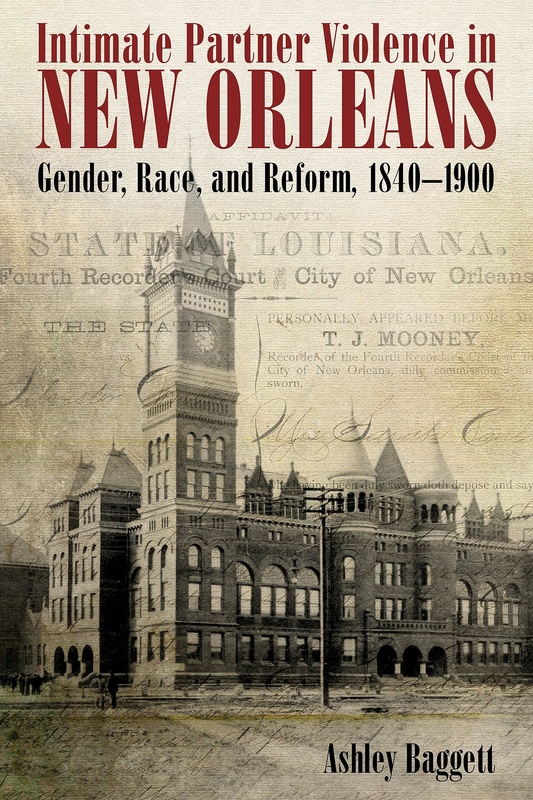
Intimate Partner Violence in New Orleans
Gender, Race, and Reform, 1840-1900
Ashley Baggett uncovers the voices of abused women who utilized the legal system in New Orleans to address their grievances from the antebellum era to the end of the nineteenth century. Poring over 26,000 records, Baggett analyzes 421 criminal cases involving intimate partner violence—physical or emotional abuse of a partner in a romantic relationship—revealing a significant demand among women, the community, and the courts for reform in the postbellum decades.
Before the Civil War, some challenges and limits to the male privilege of chastisement existed, but the gendered power structure and the veil of privacy for families in the courts largely shielded abusers from criminal prosecution. However, the war upended gender expectations and increased female autonomy, leading to the demand for and brief recognition of women’s right to be free from violence. Baggett demonstrates how postbellum decades offered a fleeting opportunity for change before the gender and racial expectations hardened with the rise of Jim Crow.
Her findings reveal previously unseen dimensions of women’s lives both inside and outside legal marriage and women’s attempts to renegotiate power in relationships. Highlighting the lived experiences of these women, Baggett tracks how gender, race, and location worked together to define and redefine gender expectations and legal rights. Moreover, she demonstrates recognition of women’s legal personhood as well as differences between northern and southern states’ trajectories in response to intimate partner violence during the nineteenth century.
A fuller picture of working-class and black women’s lives than might otherwise have been possible.
In all, this study refocuses the subject of the law, of the courts, and of violence toward women (and men) in a new and revealing light, important to a full understanding of changes that took place over two generations.
This volume is a welcome addition to the slim number of monographs on the history of violence against wives. . . . The book is highly accessible, well edited, well written, and well organized.
This important, highly original contribution to southern history reveals yet another ugly feature of Jim Crow: it cut short a brief period of reform about domestic violence. At the height of the lynching epidemic of the 1890s, the white press and legal authorities redefined domestic violence as a black-only problem, which they then used to control, punish, and disenfranchise black men.
Ashley Baggett is assistant professor of history at North Dakota State University. She is also affiliate faculty in the women and gender studies program and associate faculty in the School of Education at NDSU.




